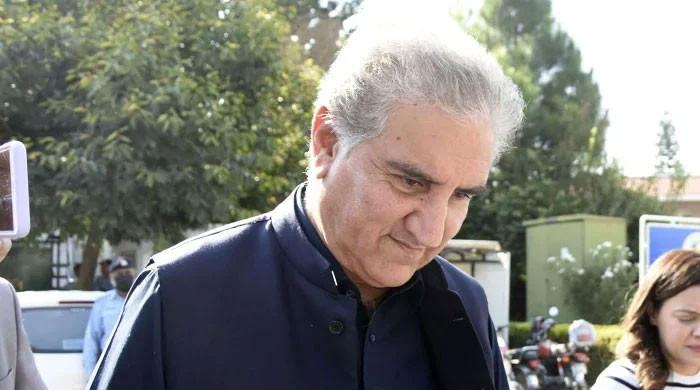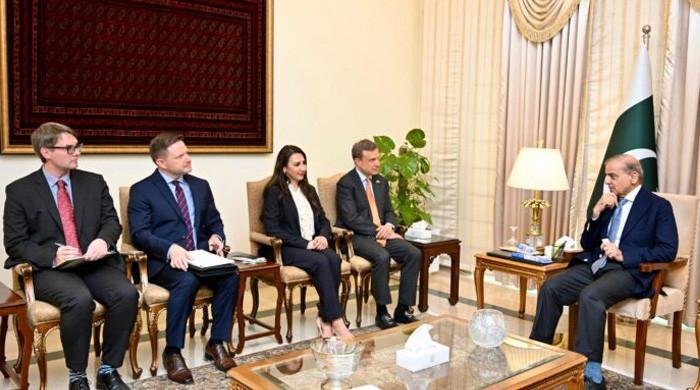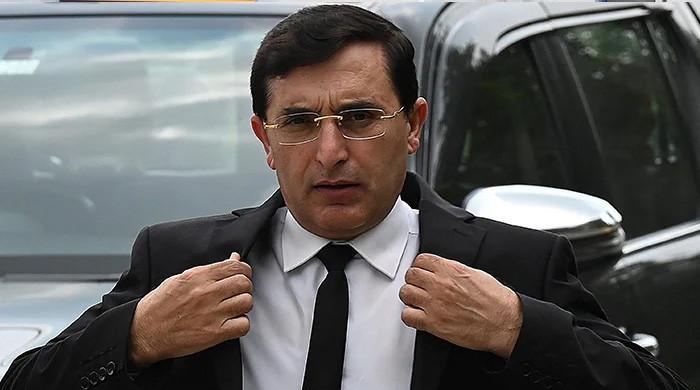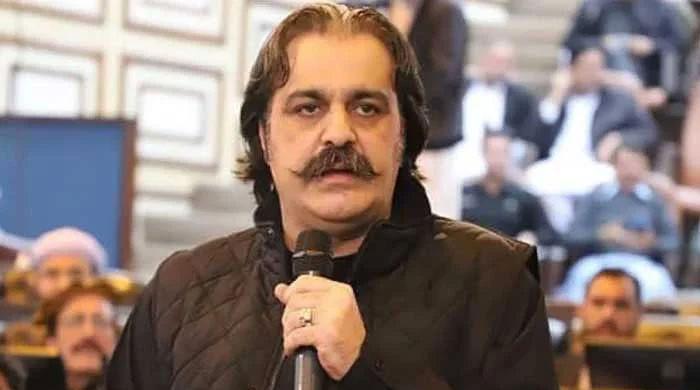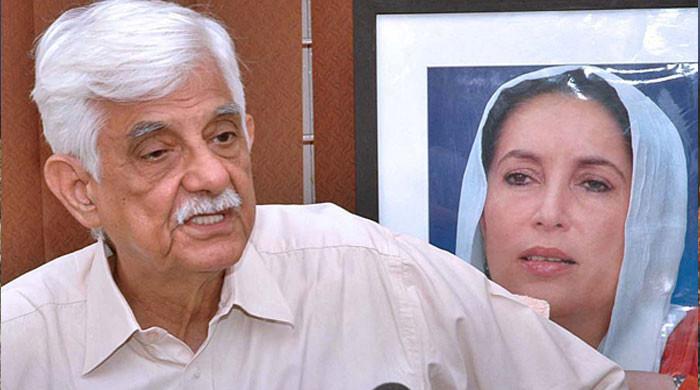Seven times Pakistani politicians embarrassed themselves in 2019
From PM Imran to Bilawal, politicians this year gave statements that made headlines for all the wrong reasons
December 13, 2019
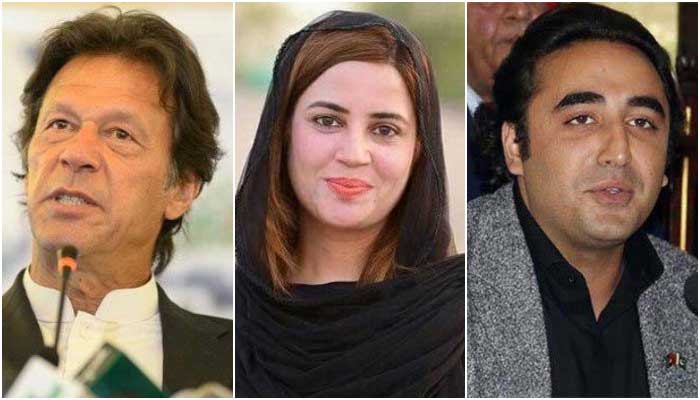
Politicians around the world make speeches and statements they come to regret years down the road. Most of the times, they mean to say one thing and end up saying another.
Pakistani politicians are no different than that. From Prime Minister Imran Khan to Pakistan Peoples Party (PPP) Chairman Bilawal Bhutto Zardari, politicians this year gave statements that made headlines for all the wrong reasons.
1. Baarish Ata Hai Toh Paani Ata Hai
PPP Chairman Bilawal Bhutto Zardari was speaking to reporters after heavy rains lashed Karachi in August. When asked about the abysmal situation of the city in the aftermath of the rain, the Bhutto scion responded with this profound observation.
"You must try to understand this. 'Jab baarish aata hai toh paani ata hai. Jab zyada baarish ata hai toh zyaada paani ata hai. (Rain brings water with it. More rain brings more water.)'
Bilawal then proceeded to show us how Lahore and Islamabad were above sea level while Karachi was below it. With a simple, elegation motion of his hand.
Thank you, sir. That was all the explanation we needed.
2. PM Imran parodies Bilawal's 'Baarish statement'
Prime Minister Imran Khan did not react well to Jamiat Ulema-e-Islam Fazl's (JUI-F) Azadi March November dharna. After almost all key opposition leaders — including Shehbaz, Bilawal, Fazl, Asfandyar Wali Khan, Mahmood Khan Achakzai and others stood atop the container and lashed out at the prime minister — it was only a matter of time before the premier responded.
Though he took aim at Shehbaz too, it was his ‘hilarious’ dig at Bilawal that generated interest on social media. PM Imran, at a ceremony in the capital, said sarcastically that scientists around the world were baffled at Bilawal's insightful statements about rainy weather.
"You do not realise what Bilawal Zardari has done,” he said, tongue firmly in cheek. “Scientists around the globe are baffled at his new theory. Even Einstein is baffled in his grave at his [Bilawal’s] statement that 'Jab baarish hoti hai toh paani ata hai'," he said as the audience erupted with laughter.
The prime minister's diatribe was not well received by the country’s intelligentsia or by Bilawal, who responded by calling Imran “an old man” while comparing himself more favourably as an ‘idealogue’.
Most people thought that the prime minister had embarrassed himself as the way he mocked Bilawal was unbecoming of a man of his stature.
3. When the prime minister got his geography wrong
Prime Minister Imran may mock his political opponents all he wants, but the truth is he has made some just as embarrassing gaffes.
During his visit to Tehran in April, the prime minister ‘revealed’ that Germany and Japan shared a border.
“The more trade you have with each other, [the more] your ties automatically become stronger… Germany and Japan killed millions of their civilians until after the second World War when they both decided to have joint industries on their border regions," he said, oblivious to the blunder.
Rival political parties and social media trolls had a field day bashing the prime minister over his remarks.
4. The Faisal Vawda conundrum
He once made headlines for putting on a bulletproof vest, arming himself with a gun and turning up to ‘fight’ militants who had stormed the Chinese consulate in Karachi.
He made headlines again when he stomped his feet on the remains of India's MiG-21 Bison fighter jet (shot down on February 27) and then threatening the Indian Army (a few hours earlier, PM Imran had offered peace to India).
More notoriously, he made headlines when he said Pakistan's economy would improve within three to four weeks and predicted that the number of available jobs would outstrip the number of job seekers.
"In a matter of three to four weeks, even the paanwalas (paan vendors) and the lawalas (street hawkers) will ask the government to collect taxes from them," he said.
"If that doesn't happen, you can make Tikka botis out of me."
Like much of his other antics, this, too, turned out just to be a load of hot air.
5. Ali Amin Gandapur — the minister FOR inflation
Every government wants to bring down prices of essential food items so that the public can be happy. Not this federal minister, though.
Not too long ago, the prices of tomatoes skyrocketed due to shortages. Ali Amin Gandapur, when questioned about the pain the higher prices were inflicting on cash strapped households, responded saying that food price inflation was, in fact, great for the economy.
Gandapur was of the view that farmers benefit the most from inflation as the prices of vegetables and fruits skyrocket, providing them an edge.
The minister also said that it was common for prices to oscillate, but it was only the people who would eventually benefit.
"Millions of farmers, our brothers, were affected when potato prices fell," he noted.
I guess to say that Mr Gandapur is an optimist would be an understatement.
6. Zartaj Gul Wazir—more loyal than the king?
Believe it or not, Zartaj Gul Wazir once said that the reason Pakistan was getting an abundance of rain and snowfall was because an honest man like Imran Khan was the country's prime minister.
Simple reminder — this is Pakistan's minister of state for climate change.
7. When Mufti Kifayatullah connected the dots
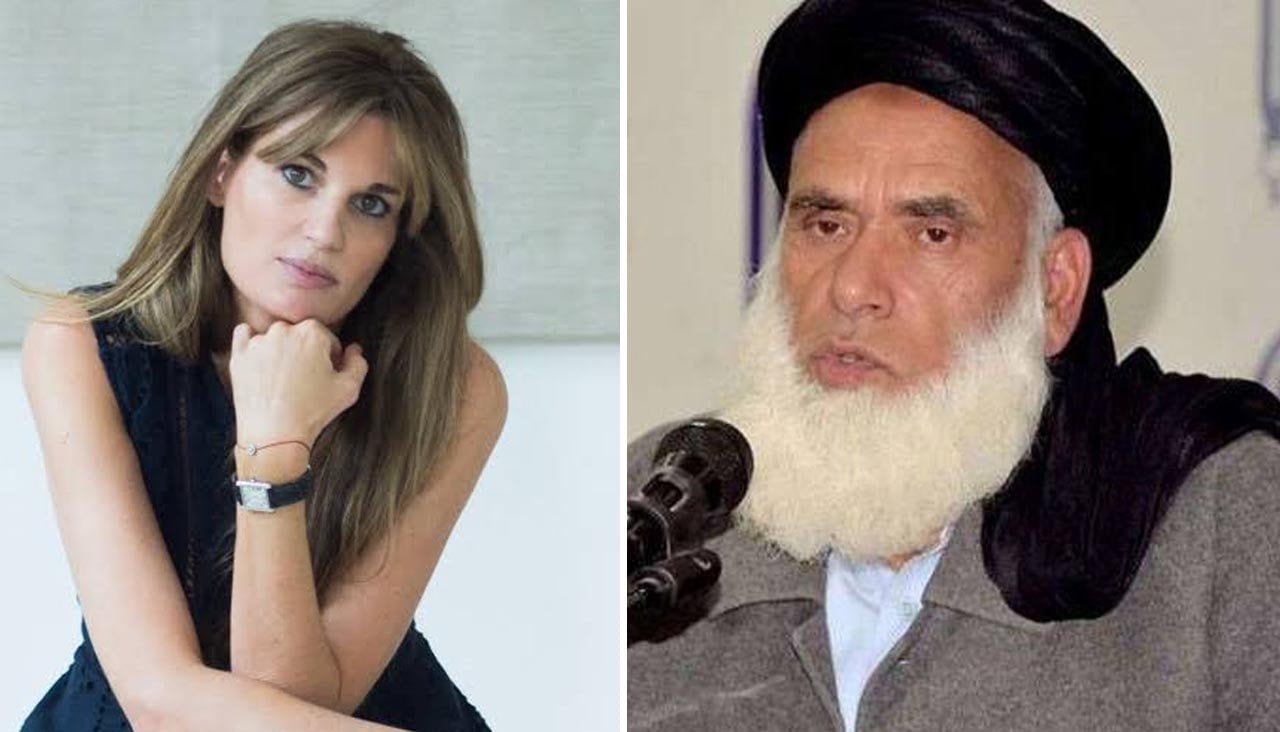
A senior JUI-F leader, Mufti Kifayatullah, sent ripples across Pakistan's political landscape when he came up with a new theory on WikiLeaks.
According to Kifayatullah, a man named Wiki (as in, Wiki-leaks) is, in fact, a cousin of Jemima Goldsmith (the prime minister’s ex-wife) and was actually the main culprit behind WikiLeaks.
He doubled down saying that Imran Khan, Jemima, Henry Kissinger (former US secretary of state) and the Goldsmith family are part of this grand conspiracy.
Talk about living in lala-land.




